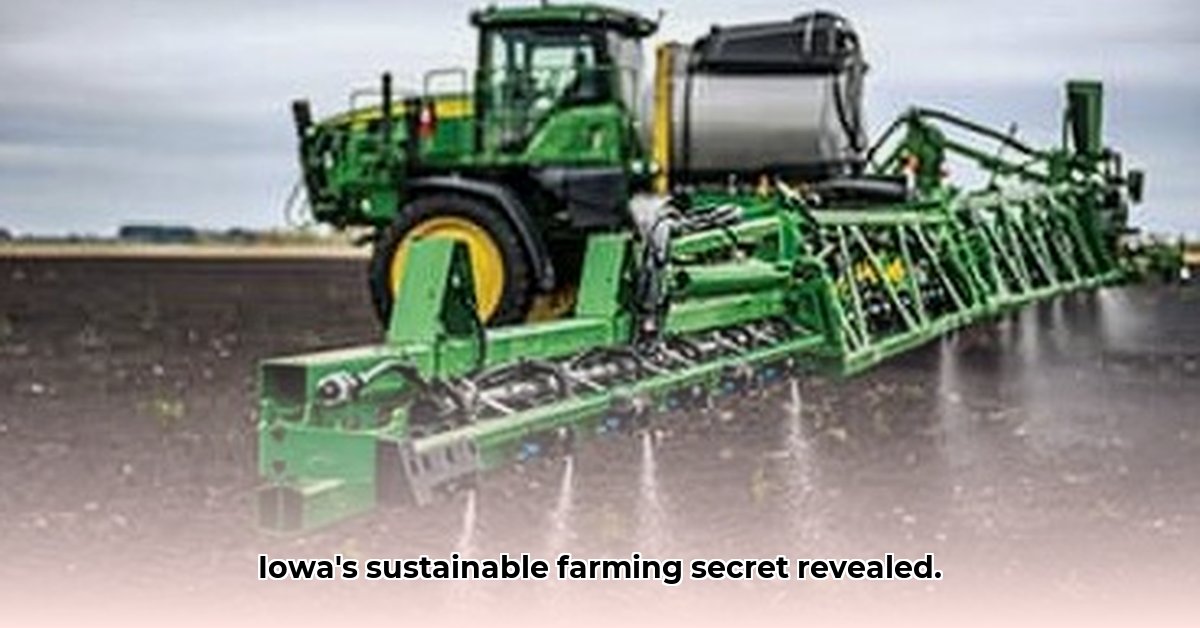
Sinclair Tractor's Journey: From Local Roots to Regional Success
Sinclair Tractor, headquartered in Bloomfield, Iowa, has evolved from a small, local operation to a significant player in the agricultural machinery market across Iowa, Illinois, and Missouri. Founded in 1998, its growth is a testament to strong customer relationships and an understanding of the unique needs of the farming community. 1 For more on farm equipment companies, see this helpful resource. The company’s success story isn't solely about selling tractors; it’s about building lasting connections and providing reliable service. This personalized approach, built on word-of-mouth referrals, has enabled them to navigate economic fluctuations and technological advancements, serving a diverse clientele from individual landowners to large-scale agricultural operations. How has Sinclair Tractor managed to thrive? Their understanding of local needs, coupled with smart partnerships, provides a compelling case study.
A Winning Business Model: Partnerships and Community Engagement
Sinclair Tractor's success isn't solely attributable to selling high-quality equipment; it's built on a strong foundation of strategic partnerships and community engagement. The company's emphasis on nurturing robust customer relationships is a cornerstone of its business model. They actively participate in the communities they serve, fostering trust and loyalty that translate into repeat business and organic growth. Their partnership with John Deere provides access to cutting-edge technology and a wide range of products, significantly enhancing their brand reputation and offering a diverse selection to their clientele. However, this reliance on a single major supplier also poses a risk. How can Sinclair Tractor mitigate this dependence and ensure future agility? Diversification of suppliers and exploring partnerships with manufacturers specializing in sustainable technologies are crucial strategies.
Sustainability: A Growing Imperative
While Sinclair Tractor's commercial success is notable, a critical analysis of its contribution to sustainable agriculture is necessary. Concrete data on their direct impact on sustainable farming practices remains limited. The absence of publicly available information regarding sales of eco-friendly machinery or their involvement in sustainability initiatives presents both a challenge and a significant opportunity for future development. The increasing demand for sustainable agricultural practices necessitates a proactive approach. How can Sinclair Tractor position itself as a leader in this evolving market? A strategic shift toward sustainable practices is not just an option; it's a necessity for long-term success.
Actionable Steps Toward Sustainability
To enhance its sustainability profile and address the lack of data on its current impact, Sinclair Tractor should consider these strategic steps:
Comprehensive Data Collection: Implement a robust data collection system to track sales of fuel-efficient models and energy-saving technologies. This will provide a clearer understanding of its current contribution to sustainability.
Direct Customer Engagement: Conduct in-depth customer surveys and focus groups to understand farmer priorities regarding sustainable technology. This will inform product offerings and enhance customer satisfaction.
Expanding Sustainable Offerings: Increase the inventory of eco-friendly machinery, potentially through partnerships with manufacturers specializing in sustainable agricultural technologies. This demonstrates commitment to environmentally conscious farming.
Farmer Empowerment Through Education: Offer workshops and educational resources about sustainable agricultural practices. Empowering farmers directly leads to the adoption of environmentally friendly methods.
Strategic Partnerships: Collaborate with organizations dedicated to promoting sustainability in agriculture to leverage expertise and access innovative technologies.
Navigating the Competitive Landscape: Challenges and Opportunities
The agricultural machinery market is fiercely competitive. Maintaining a strong brand identity and exceptional customer service is paramount for continued success. While the John Deere partnership offers significant advantages, an over-reliance on a single supplier poses risks. Diversifying suppliers and developing relationships with manufacturers specializing in sustainable technologies is crucial for mitigating these risks and ensuring long-term flexibility.
Regulatory Compliance and Risk Mitigation
The agricultural sector is subject to an evolving regulatory landscape. Strict compliance with emission standards, waste management guidelines, and data privacy laws is critical for maintaining operational integrity and avoiding potential penalties. Proactive monitoring of regulatory changes and continuous engagement with legal counsel are essential.
Risk Assessment Matrix:
| Risk Category | Likelihood | Impact | Mitigation Strategy |
|---|---|---|---|
| Dependence on John Deere | High | High | Diversify supplier base; partner with sustainable technology providers. |
| Insufficient Sustainability Data | Medium | Medium | Implement comprehensive data collection and analysis; conduct regular customer surveys. |
| Regulatory Non-Compliance | Medium | High | Proactive regulatory monitoring; legal counsel; compliance training. |
| Intense Market Competition | High | Medium | Enhance customer service; foster brand loyalty; expand and diversify product offerings. |
Conclusion: A Future Rooted in Sustainability
Sinclair Tractor has demonstrated remarkable growth and success. However, its future trajectory will depend on its ability to embrace sustainable practices, adapt to a dynamic regulatory landscape, and effectively manage the risks associated with key partnerships. The company’s focus on strong customer relationships and community engagement lays a solid foundation. However, the commitment to sustainability, supported by data-driven decision-making, will ultimately determine its long-term success in the evolving agricultural sector. The journey ahead involves not just selling equipment but actively contributing to a more environmentally responsible future for agriculture.